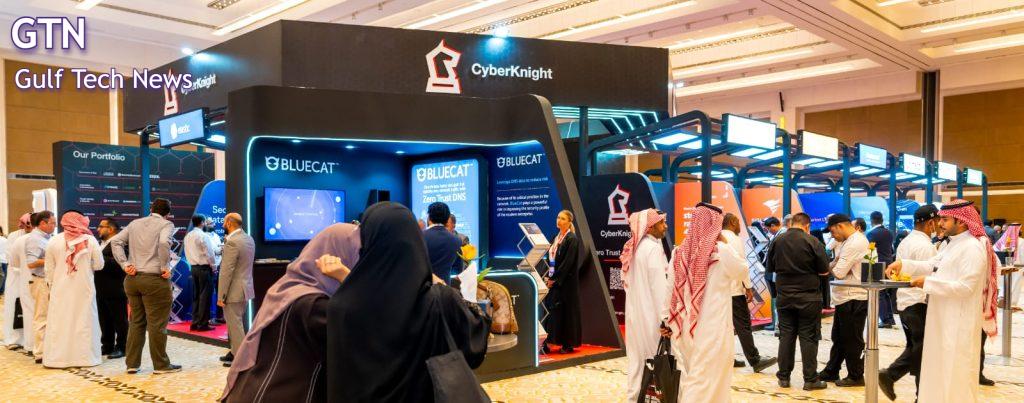Cybersecurity Leaders Join Forces at MENA ISC 2024 to Build Hyper-Resilient Cyber Defense Framework for Saudi Arabia

In today’s interconnected digital landscape, collaboration among organizations is not just a beneficial strategy – it is an essential component for building a hyper-resilient cybersecurity framework. As digital ecosystems become increasingly complex, no single entity, regardless of its resources or expertise, can effectively combat the growing sophistication of cyber threats alone.
The urgency of fostering such collaboration is heightened by the growing complexity of cyber threats. The PwC 2024 Global Digital Trust Insights survey points out that 47% of global business leaders now rank cloud security as their top concern for the coming year. This concern is not unfounded, as cloud environments, while offering unparalleled scalability and flexibility, also introduce new vulnerabilities that can be exploited by malicious actors.
In this context, collaboration among cybersecurity providers, technology companies and governmental organizations becomes crucial to developing comprehensive solutions that can secure cloud infrastructures and protect sensitive data across diverse environments.

By pooling resources, sharing intelligence, and leveraging the unique strengths of each partner, collaborative ecosystems can create a multifaceted defense that is far more resilient than what a single organization could achieve on its own.
Recognizing this critical need for collaboration between leading local and international cybersecurity leaders, and governmental bodies; the key industry drivers – Salam, CyberKnight, and Cyber Polygon (an international cybersecurity training initiative by BI.ZONE), have joined the 12th edition of the MENA Information Security Conference (MENA ISC), hosted by VirtuPort, with the theme, “Hyper-Resilient Cyber: Navigating the Evolving Threat Landscape of the Interconnected World of IT, OT, IoT, IIoT, & Hybrid Cloud”, to contribute to establishing a comprehensive cybersecurity framework in the Kingdom.

Salam, a prominent Saudi-based player in telecommunications and digital infrastructure. Salam is crucial in providing the foundational infrastructure necessary to secure Saudi Arabia’s digital future with its extensive network capabilities and deep understanding of the regional market.
As cyber threats become more sophisticated, particularly in cloud environments, Salam’s role in enhancing the Kingdom’s cyber resilience is vital. The PwC report notes that 42% of organizations with hybrid cloud environments cite cloud security as their most pressing cybersecurity risk, highlighting the importance of Salam’s contribution.
CyberKnight is a leader in Zero Trust methodology and practice. In the new cloud generation and digital transformation era, organizations should consider a different security model that is more adaptive, capable to adapt to the sophistication of the modern infrastructures, enables the mobile workforce and cloud adoption, and protects data accessed by users, devices, applications from wherever they’re located.

Zero Trust’s main objective is to help understand, manage — and essentially, reduce — the implicit trust assumed in the traditional perimeter-based security architectures. CyberKnight adopts Forrester’s Zero-Trust framework as the main methodology for its go-to-market solutions offerings and strategy.
“Our participation in MENA ISC 2024 aligns with Saudi Arabia’s Vision 2030, which prioritizes a robust and secure digital infrastructure as a foundation for the Kingdom’s economic growth. This reputable conference remains the cornerstone for cybersecurity thought leadership in Saudi Arabia, attracting key IT Security leaders and influencers who are shaping the Kingdom’s cybersecurity future.
As a trusted advisor, our presence at this event is crucial for both CyberKnight and our participating vendors to advocate for Zero Trust Security and cybersecurity innovations that meet the region’s unique needs,” commented Wael Jaber, Chief Strategy Officer at CyberKnight.
A crucial role in this collaboration plays Cyber Polygon, an international online training for raising global cyber resilience organized by BI.ZONE. It focuses on the critical area of workforce development in cybersecurity, a key priority in today’s digital landscape. As cyber threats grow in complexity, the need for continuous training and knowledge sharing becomes essential.
Cyber Polygon addresses this by offering specialized training that strengthens the skills of cybersecurity professionals. It is especially important in Saudi Arabia in alignment with Vision 2030 and its human resource development goals.
With a global shortage of nearly 4 million cybersecurity experts (according to the World Economic Forum), Cyber Polygon’s efforts are vital. Their training sessions are designed to simulate real-world scenarios, enabling participants to enhance their practical skills in countering sophisticated attacks.
“We have the pleasure of partnering with MENA ISC 2024 to host Cyber Polygon, the largest international cybersecurity training for organizations. The participants will investigate a real cyberattack on a technology company.
The scenario is based on years of experience in attack investigations and includes techniques, tactics, and procedures that intruders use today.
More than 250 organizations from 50 countries have already signed up for the training. We believe that the Cyber Polygon exercise will enhance resilience to digital threats in the MENA region and beyond,” said Dmitry Samartsev, CEO, BI.ZONE.
This coalition comes at a pivotal moment. PwC’s report reveals that 79% of organizations plan to increase their cybersecurity budgets in 2024, with a particular focus on modernizing technology infrastructure and optimizing existing investments.
In line with this, the collaboration between various players that will be present at MENA ISC 2024 is set to play a crucial role in enhancing the Kingdom’s cybersecurity landscape, ensuring that it remains resilient against the newfound challenges of the digital age.





